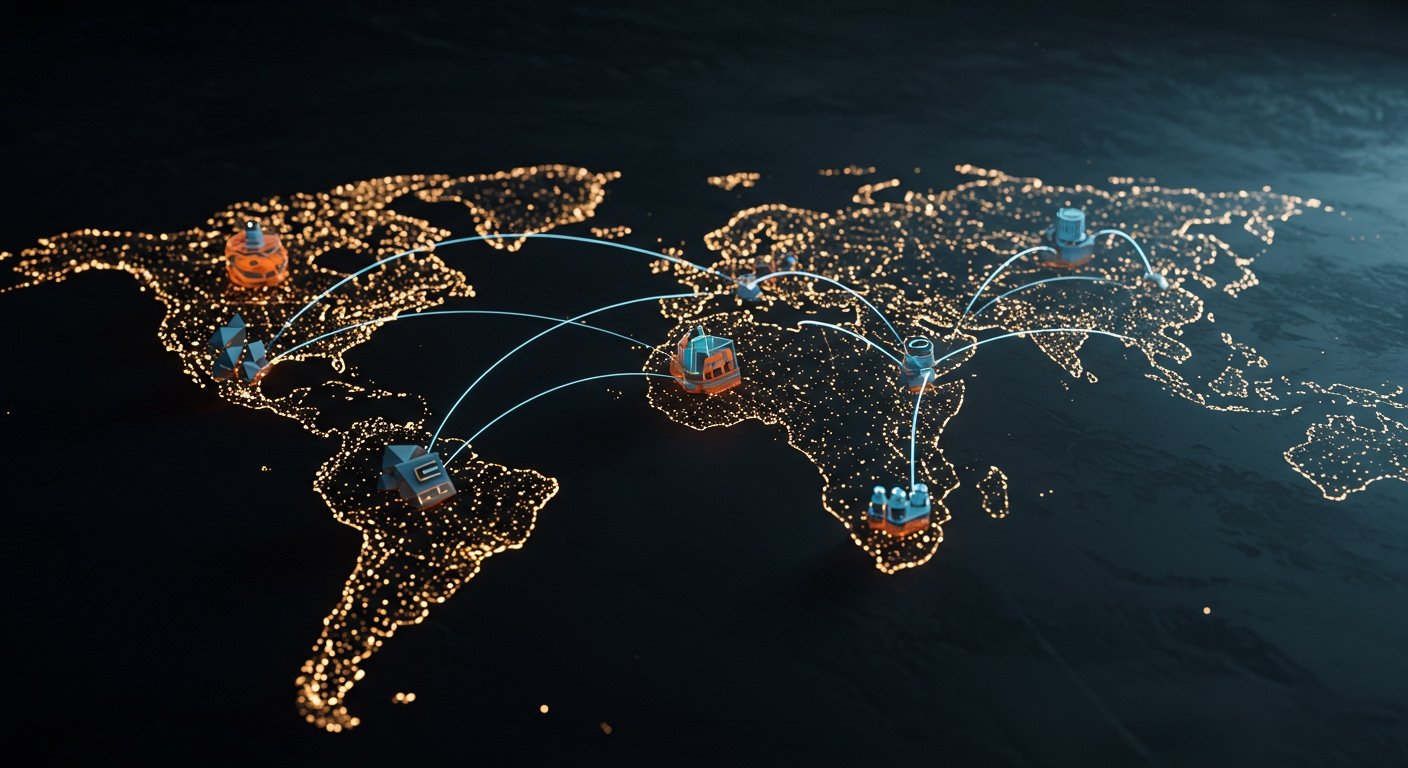A significant wave of international corporate investment is poised to reshape segments of the United States economy, potentially generating tens of thousands of new jobs. Global leaders in technology, manufacturing, and real estate are directing massive capital flows into American ventures, signaling confidence in the U.S. market and aligning with strategic national priorities.
This surge in foreign direct investment is broad-based, focusing on critical sectors ranging from advanced artificial intelligence and semiconductor manufacturing to traditional heavy industry like steel and modern infrastructure like data centers. The commitments, totaling hundreds of billions of dollars, underscore a strategic move by these global entities to expand their presence and operational footprint within the United States.
SoftBank’s Hundred Billion Pledge
Among the most substantial commitments is that from Japanese technology conglomerate SoftBank Group Corp. Following a meeting between SoftBank Chairman and CEO Masayoshi Son and then President-elect Donald Trump in late 2024, Son pledged a staggering $100 billion investment in the United States over the subsequent four years. This ambitious investment is specifically targeted towards sectors deemed crucial for future economic growth: artificial intelligence and infrastructure development. SoftBank’s stated aim for this monumental capital deployment is the creation of up to 100,000 jobs across the country, a figure that highlights the potential scale of this investment wave.
TSMC Expands Semiconductor Footprint
The semiconductor industry, vital for virtually all modern technology, is another focal point of this international investment. Taiwan Semiconductor Manufacturing Company (TSMC), the world’s largest contract chipmaker, is significantly expanding its operations in the U.S. The company is currently undertaking a massive $100 billion investment initiative in the United States. This latest commitment adds to a previous pledge of $65 billion, bringing TSMC’s total planned investment in U.S. facilities to an unprecedented $165 billion. This colossal sum is earmarked for the construction of five new factories dedicated to advanced semiconductor production. The first of these facilities, located in Arizona, has already reached the production phase, demonstrating the tangible progress of these investment plans and solidifying the U.S.’s role in the global chip supply chain.
Diversified Investments: Steel, Auto, and Data Centers
The investment trend extends beyond high-tech semiconductors and AI, reaching into foundational industries and new digital infrastructure. Nippon Steel, a major Japanese steel producer, has signaled its intention to invest in American steel facilities with the goal of revitalizing traditional steel towns in states such as Pennsylvania or Ohio. This move suggests a focus on reinforcing domestic industrial capacity in strategically important regions.
In the automotive sector, South Korean giant Hyundai Motor Group is actively exploring opportunities for both auto and steel manufacturing operations specifically within the Southern U.S. This potential expansion points towards growth in both vehicle production and the upstream supply chain for steel components.
Meanwhile, DAMAC Properties, a leading real estate developer from the United Arab Emirates, is concentrating its U.S. investment efforts on real estate development specifically for data centers. Their focus spans a wide geographic area, targeting regions stretching from Arizona all the way across the country to Ohio. The demand for data storage and processing infrastructure, fueled by cloud computing and AI, makes data centers a key area for growth and investment.
Strategic Drivers and Policy Context
These substantial international investments are closely linked to the stated goals of President Donald Trump’s administration. A key initiative championed by President Trump is the effort to reshore manufacturing – encouraging companies to bring production facilities back to the United States. The concentration of these foreign investments in strategic sectors like artificial intelligence and semiconductors directly supports this objective, aiming to bolster U.S. self-sufficiency and competitiveness in critical technologies.
Beyond specific policy initiatives, a primary driving factor cited by many international investors is the perceived stability of the U.S. market. Amidst global economic uncertainties and geopolitical shifts, the United States is often viewed as a secure and predictable environment for long-term capital deployment. This perceived stability, combined with targeted policy support and the potential for robust domestic demand, makes the U.S. an attractive destination for foreign companies looking to expand their global reach and secure supply chains.
In conclusion, the confluence of these major investment pledges from international powerhouses like SoftBank, TSMC, Nippon Steel, Hyundai, and DAMAC represents a significant economic development. Focused on strategic sectors and spread across various regions, these billions in foreign capital have the potential to inject vitality into the U.S. economy, driving innovation, rebuilding industrial capacity, and creating a substantial wave of new jobs in the years ahead.













